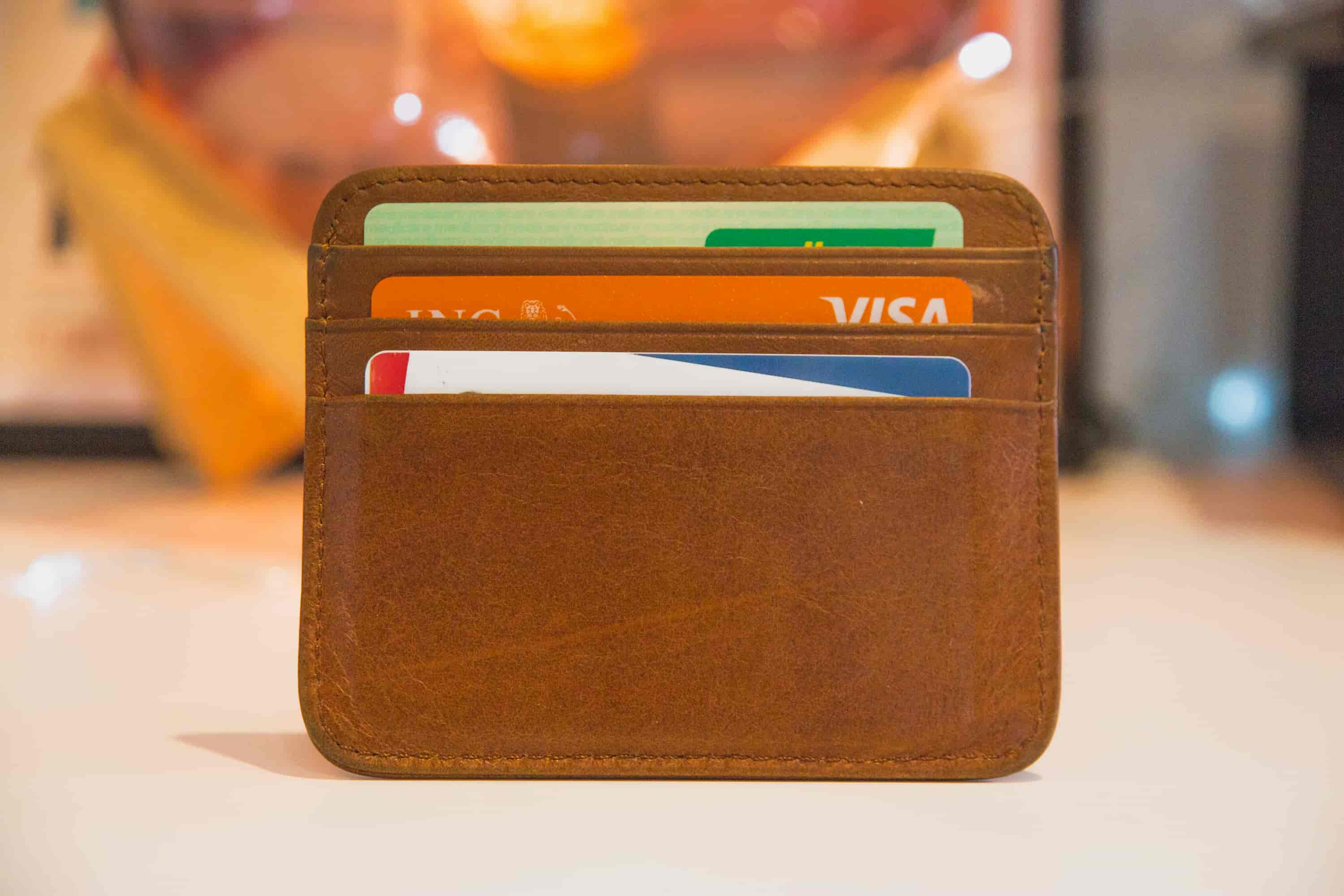

Finance
How To Build Up Credit From Nothing
Modified: March 5, 2024
Learn how to build up your credit from scratch with our comprehensive finance guide. Take control of your financial future and establish a solid credit history.
(Many of the links in this article redirect to a specific reviewed product. Your purchase of these products through affiliate links helps to generate commission for LiveWell, at no extra cost. Learn more)
Table of Contents
Introduction
Building up credit from scratch can feel like a daunting task, especially when you have little to no credit history or have experienced past financial challenges. However, with the right strategies and patience, it is possible to establish a strong credit score and open up opportunities for future financial endeavors.
Your credit score is a numerical representation of your creditworthiness, and it influences your ability to borrow money, secure favorable interest rates, and even rent an apartment. Without a solid credit history, lenders and creditors may view you as a risk, making it difficult to access credit and financial resources.
In this article, we will explore various methods to help you build credit from nothing, taking into account your unique circumstances and financial goals. From starting with a secured credit card to becoming an authorized user and applying for a credit builder loan, we will guide you through the steps to establish a positive credit profile.
Remember, building credit is a gradual process that requires commitment and responsible financial behavior. By following these strategies and staying disciplined in managing your finances, you can lay the foundation for a solid credit score and increase your chances of future financial success.
Understanding Credit Scores
Before diving into the steps of building credit, it’s important to have a clear understanding of what credit scores are and how they are calculated. A credit score is a three-digit number that represents your creditworthiness and is used by lenders to assess the risk of lending to you.
The most commonly used credit scoring model is the FICO score, which ranges from 300 to 850. The higher your score, the better your creditworthiness. Credit scores are based on several factors, including:
- Payment history: This is the largest factor impacting your credit score and considers whether you have made timely payments on your debts.
- Credit utilization: This is the amount of credit you have used compared to the total credit available to you. Keeping your credit utilization below 30% is generally recommended.
- Length of credit history: This takes into account how long you have had credit accounts open. The longer your credit history, the better.
- Credit mix: Having a mix of different types of credit, such as credit cards, loans, and mortgages, can positively impact your credit score.
- New credit: Opening multiple new credit accounts within a short period of time can lower your credit score.
It’s important to regularly monitor your credit score and review your credit reports from the three major credit bureaus, Equifax, Experian, and TransUnion. This will help you identify any errors or discrepancies that could be negatively impacting your score.
Keep in mind that building credit takes time, and there are no quick fixes. By understanding how credit scores are calculated and the factors that influence them, you can make informed decisions and take the necessary steps to improve your creditworthiness.
Starting with a Secured Credit Card
One of the first steps in building credit from nothing is to obtain a secured credit card. Unlike traditional credit cards, a secured credit card requires a security deposit, which serves as collateral for the credit limit. This deposit reduces the risk for the card issuer and allows individuals with limited or no credit history to qualify.
To get a secured credit card, you will need to research and compare different options available from reputable lenders. Look for a card with low fees and a reporting feature that reports your payment history to the major credit bureaus.
Once you have selected a secured credit card, you will be required to make a security deposit, typically equal to the desired credit limit. This deposit is held by the card issuer as a guarantee in case you default on your payments.
Using a secured credit card responsibly is crucial for building credit. Make small purchases with the card and pay off the balance in full each month. This demonstrates responsible credit management and establishes a positive payment history.
Over time, with consistent and timely payments, you may become eligible for an upgrade to an unsecured credit card, where you can retrieve your security deposit. This transition is a milestone in your credit-building journey, as unsecured credit cards typically offer higher credit limits and more benefits.
Remember, avoiding overspending and keeping your credit utilization low is important for maintaining a healthy credit score. Aim to keep your credit utilization below 30% to demonstrate responsible credit management and increase your chances of qualifying for other credit opportunities in the future.
Becoming an Authorized User
If you have a trusted family member or friend with a good credit history, you can consider becoming an authorized user on one of their credit cards. As an authorized user, you will be issued a card and allowed to make purchases using the account, but you are not responsible for the payments.
Being an authorized user can be beneficial for building credit because the card’s payment history and credit utilization will be reported on your credit report as well. However, it’s important to ensure that the primary account holder has responsible credit behavior and makes timely payments.
Before becoming an authorized user, have an open and honest conversation with the primary account holder to establish expectations regarding card usage and payment responsibilities. Make sure both parties are on the same page and understand the potential impact on credit scores.
It’s worth mentioning that not all credit card issuers report authorized user activity to credit bureaus, so it’s essential to confirm this before proceeding. Additionally, keep in mind that if the primary account holder misses payments or has a high credit utilization, it could negatively impact your credit score.
Remember, being an authorized user is a temporary solution to help establish credit. As you build your credit history, aim to qualify for credit accounts in your own name, allowing you to take full control of your own credit journey.
Applying for a Credit Builder Loan
If you are looking for a more structured approach to building credit, applying for a credit builder loan can be a viable option. A credit builder loan is specifically designed for individuals with little to no credit history.
A credit builder loan works by borrowing a small amount of money, typically held in a secured account, and making regular monthly payments over a predetermined period. The lender reports your payment activity to the credit bureaus, helping to establish a positive payment history.
Unlike traditional loans, the borrowed funds are not immediately accessible to you. Instead, the lender holds the funds in a separate account as collateral until the loan is fully repaid. Once the loan is paid off, you can access the funds, and you have also built a positive credit history in the process.
When applying for a credit builder loan, research different lenders and compare terms and fees. Look for loans that report to all three major credit bureaus, have reasonable interest rates, and flexible repayment options.
It’s important to make all monthly payments on time and in full to maximize the positive impact on your credit score. Missing payments or making late payments can have the opposite effect and hurt your credit progress.
While the funds you borrow may be small, the credit builder loan helps establish a payment history, which is a key factor in determining your creditworthiness. Over time, as you demonstrate responsible repayment behavior, you will begin to build a positive credit profile and increase your chances of qualifying for future credit opportunities.
Remember that the purpose of a credit builder loan is to gradually build credit, so it’s essential to be patient and committed to the process. The long-term benefits of a strong credit score far outweigh the short-term inconvenience of repaying the loan.
Making Timely Payments
One of the most important factors in building credit is consistently making timely payments on all of your credit obligations. Payment history makes up a significant portion of your credit score, so it’s crucial to prioritize paying your bills on time.
Whether it’s credit card payments, loan installments, or utility bills, aim to make all payments by the due date to avoid late payment penalties and negative impacts on your credit score.
To ensure timely payments, consider setting up automatic payments or reminders through your bank or credit card provider. This will help you stay organized and avoid missing any payment deadlines.
If you encounter financial difficulties and are unable to make a payment on time, it’s crucial to communicate with your creditors. Reach out to them as soon as possible to explain the situation and explore potential options, such as deferment or setting up a payment plan. Most creditors are willing to work with you, as they prefer to receive some payment rather than having the debt go unpaid.
Remember, even a single late payment can have a negative impact on your credit score, so prioritize making timely payments to maintain a good credit standing.
In addition to making on-time payments, consider paying more than the minimum required amounts. By paying more, you demonstrate responsible credit management and can reduce the overall interest you pay over time.
Consistent and timely payments not only help you build credit but also show lenders that you are a responsible borrower. This can increase your chances of being approved for future credit applications and may even result in more favorable interest rates and terms.
Building a track record of on-time payments is a crucial step in establishing a strong credit profile and growing your creditworthiness. Make it a habit to prioritize and manage your payments effectively to set yourself up for long-term credit success.
Keeping Credit Utilization Low
Another key factor in building and maintaining a good credit score is keeping your credit utilization ratio low. Credit utilization refers to the amount of credit you are using compared to the total credit available to you. It is calculated by dividing your outstanding credit card balances by your total credit limit.
Maintaining a low credit utilization ratio demonstrates responsible credit management and can positively impact your credit score. Credit scoring models generally recommend keeping your credit utilization below 30%.
To keep your credit utilization low, consider the following strategies:
- Pay off balances in full: Aim to pay off your credit card balances in full each month to avoid carrying high balances and accumulating unnecessary interest charges.
- Monitor spending habits: Be mindful of your spending patterns and avoid maxing out your credit cards. Instead, spread out your purchases and try to keep your balances well below your credit limits.
- Request a credit limit increase: Contact your credit card issuers and ask for a credit limit increase. This can help boost your available credit and lower your credit utilization ratio.
- Use multiple credit cards: Distribute your expenses across multiple credit cards to keep individual card balances low. This can help you maintain a healthier credit utilization ratio.
- Make mid-cycle payments: If you find that your credit card balances are creeping up, consider making mid-cycle payments to keep them in check. This can help prevent your credit utilization from spiking too high.
By keeping your credit utilization low, you demonstrate that you are using credit responsibly and not relying heavily on borrowed funds. This can have a positive impact on your credit score and make you more attractive to lenders.
Remember, maintaining a low credit utilization ratio is an ongoing effort. Regularly review your credit card balances, make timely payments, and adjust your spending habits accordingly to keep your credit utilization in a healthy range.
Monitoring and Reviewing Credit Reports
Monitoring and reviewing your credit reports regularly is an essential step in building and maintaining good credit. Your credit report provides a detailed record of your credit history and is used by lenders to assess your creditworthiness.
It’s important to check your credit reports from the three major credit bureaus—Equifax, Experian, and TransUnion—on a regular basis. You are entitled to receive one free credit report from each bureau every year through annualcreditreport.com.
Reviewing your credit reports allows you to:
- Check for errors or discrepancies: Look for any incorrect information, such as inaccurate account balances, late payment records, or unfamiliar accounts. If you identify any errors, promptly dispute them with the respective credit bureau to have them corrected.
- Identify potential identity theft: Monitoring your credit reports can help you detect any unauthorized accounts or suspicious activity that could indicate identity theft. If you notice anything unusual, report it to the credit bureaus and take steps to protect your identity.
- Track your credit-building progress: By regularly reviewing your credit reports, you can see how your credit-building efforts are reflected in your credit history. As you make timely payments and manage your credit responsibly, you should see improvements in your credit score over time.
In addition to the free annual credit reports, many credit card companies and credit monitoring services offer access to your credit scores and reports on an ongoing basis. Take advantage of these resources to stay updated on your credit status and track your progress.
Remember, each credit bureau may have slightly different information on your reports, so it’s important to review all three. If you notice any discrepancies, it’s recommended to contact the specific bureau directly to address the issue.
Monitoring and reviewing your credit reports regularly allows you to maintain control over your credit profile and take prompt action if any issues arise. By staying proactive, you ensure that your credit information is accurate and have a better chance of achieving your credit goals.
Graduating to Unsecured Credit
As you continue to build a positive credit history and demonstrate responsible credit management, you may eventually be able to graduate from secured credit cards or credit builder loans to unsecured credit. Unsecured credit refers to credit accounts that do not require collateral or a security deposit.
Graduating to unsecured credit is a significant milestone in your credit-building journey and opens up more opportunities for borrowing and improving your credit profile. Here are a few steps you can take to increase your chances of obtaining unsecured credit:
- Maintain a good payment history: Consistently making timely payments on all your credit obligations is crucial. Your payment history is a key factor that lenders consider when evaluating your creditworthiness.
- Keep your credit utilization low: Aim to keep your credit card balances below 30% of your available credit limit. This showcases responsible credit management and shows lenders that you are not overly reliant on borrowed funds.
- Build a positive credit history: Establishing a longer credit history can improve your chances of qualifying for unsecured credit. The length of your credit history is an important factor in credit scoring models.
- Diversify your credit accounts: Having a mix of different credit accounts, such as credit cards, installment loans, or a mortgage, can show lenders that you can handle different types of credit responsibly.
- Monitor your credit score: Keeping an eye on your credit score allows you to track your progress and be aware of any changes or fluctuations. It also helps you identify when you may be ready to apply for unsecured credit.
When you feel confident that you have built a solid credit history, you can start exploring options for unsecured credit. Research different credit card offers or loan products that cater to individuals with fair or average credit. Compare the terms, fees, and rates to find the best fit for your financial needs.
When applying for unsecured credit, keep in mind that approval is not guaranteed, and lenders will assess your creditworthiness based on various factors. Be prepared for potential rejections and continue to practice responsible credit management while you work towards achieving unsecured credit opportunities.
Remember, graduating to unsecured credit takes time and consistent effort. By maintaining responsible credit behavior, you can increase your chances of accessing unsecured credit and continue to strengthen your credit profile along the way.
Avoiding Common Credit Mistakes
When building credit, it’s essential to be mindful of common mistakes that can hinder your progress and negatively impact your creditworthiness. By avoiding these mistakes, you can stay on track towards achieving a strong credit profile. Here are some key points to keep in mind:
- Making late payments: Timely payments make up a significant portion of your credit score. Avoid making late payments, as they can lower your credit score and leave a negative mark on your credit history.
- Closing old credit accounts: Closing old credit accounts can have a negative impact on your credit utilization and credit history. Keeping these accounts open, even if they have a zero balance, can contribute positively to your credit score.
- Maxing out credit cards: Using up the full credit limit on your credit cards can harm your credit score. Aim to keep your credit utilization ratio below 30% to avoid any negative impact on your creditworthiness.
- Opening multiple accounts in a short period: Opening several credit accounts within a short time can raise red flags to lenders and negatively affect your credit score. Space out your credit applications and be selective about the accounts you open.
- Ignoring your credit reports: Regularly monitoring your credit reports is essential to identify errors, discrepancies, or signs of identity theft. Ignoring your credit reports can lead to missed opportunities to correct inaccuracies and take necessary action to protect your credit.
- Not budgeting and overspending: Failing to budget and overspending can lead to financial stress and difficulty in making timely payments. Create a budget and stick to it to ensure that you can comfortably manage your financial obligations.
- Applying for credit too frequently: Each time you apply for credit, a hard inquiry is placed on your credit report. Too many hard inquiries within a short period can lower your credit score. Only apply for credit when necessary and ensure you meet the qualifications before submitting an application.
By being aware of these common credit mistakes, you can avoid costly missteps and keep your credit-building journey on the right track. Practice responsible financial habits, stay organized with your payments, and be mindful of your credit utilization to maximize your chances of achieving a strong and healthy credit profile.
Conclusion
Building credit from nothing is a process that requires patience, discipline, and strategic financial management. While it may seem challenging at first, the steps outlined in this article can provide a roadmap for establishing a solid credit profile and opening up opportunities for future financial success.
Understanding credit scores and the factors that influence them is crucial. By focusing on making timely payments, keeping credit utilization low, and diversifying your credit accounts, you can gradually build a positive credit history.
Starting with secured credit cards or becoming an authorized user on a trusted individual’s credit card can help you establish credit. Additionally, applying for credit builder loans can provide a structured approach to building credit.
Regularly monitoring and reviewing your credit reports allows you to track your progress, identify any errors, and protect yourself against potential identity theft. By staying proactive, you can maintain a healthy credit profile and take the necessary steps to address any issues that may arise.
As you build your credit, aim to transition from secured credit to unsecured credit. This milestone demonstrates your progress and increases your access to a wider range of credit options.
Avoiding common credit mistakes such as making late payments, maxing out credit cards, and applying for credit too frequently is crucial in maintaining a positive credit profile. By being mindful of these pitfalls, you can make informed decisions that contribute to your long-term financial well-being.
In conclusion, building credit from nothing is an achievable goal with the right knowledge and strategies. By following the steps outlined in this article and staying committed to responsible credit management, you can establish a solid credit foundation and set yourself up for future financial success.














